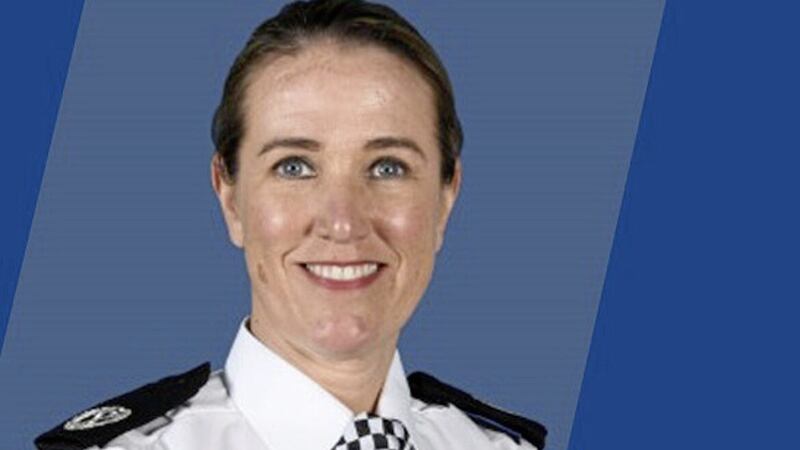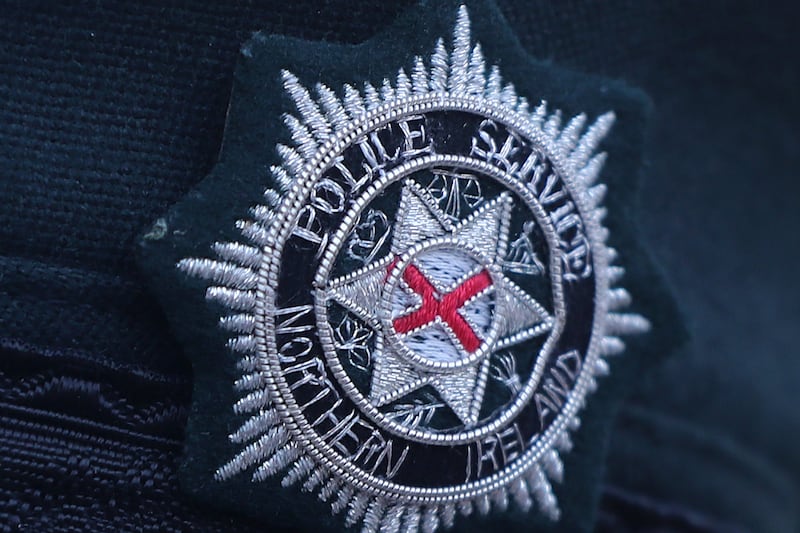A FORMER senior PSNI officer is claiming she faced sex discrimination in the aftermath of an investigation into officers working from home in the early days of the pandemic.
Ex-Chief Superintendent Emma Bond believed some officers were potentially guilty of gross misconduct or even criminal behaviour, an industrial tribunal in Belfast heard yesterday.
But Ms Bond, now an Assistant Chief Constable with Police Scotland, was also the target of a complaint after calling meetings to deliver a “rollicking” to dozens of officers inside a small room, when strict social distancing regulations were in force.
The tribunal hearing opened with a focus on events in late April/early May 2020, including claims an un-reported number of officers in the Derry City and Strabane District were working from home.
Ms Bond, the first female commander of the district and awarded an MBE for services to policing, was made aware by her superintendent of the officers not reporting for duty – and possibly claiming overtime and mileage.
She passed on the information to Assistant Chief Constable Alan Todd, who in turn made Chief Constable Simon Byrne aware of what had been happening in the district.
Barrister Aidan Sands, for the PSNI, quizzed Ms Bond over texts, email messages and journal entries involving Chief Constable Byrne, which counsel characterised as “positive” and “supportive”. A preliminary investigation and an assessment of regulations was ordered.
But while Ms Bond agreed Mr Byrne and other senior officers appeared supportive, she also raised issues about the attitude of some officers towards her, which the ex-PSNI officer believed was because she was a woman.
Senior management “did not specifically address the issue of gender”, Ms Bond told the tribunal. Mr Sands countered that this may have been the “attitude of other people” but it was directly opposite to that of senior management.
There was “nothing remotely sexist” in any of the messages and journal writings of senior management, including Mr Byrne, Mr Sands said.
The preliminary investigations found that the officers who were working from home believed it was approved by senior management and that it was being widely done across the region. There was no evidence of misconduct, they found.
It was recommended an audit be carried out on a case by case basis over whether any claims relating to mileage or overtime were valid, the tribunal heard.
Ms Bond was not satisfied with the conclusions and others agreed, including the head of the Professional Standards Department.
After again moving the issue up the chain of command, the chief constable ordered further investigation.
Mr Sands said it was not the case where Ms Bond was in a position where senior management “did not want to hear” or were “shooting the messenger”, like is often the case with a whistleblower.
“Not so far,” said Ms Bond.
She was also questioned over meetings in Derry after learning about the officers working from home.
Two early morning meetings were held, one attended by 63 people, the other by 59. It was a 150 metre sq room, said Mr Sands.
Ms Bond, in writing, described giving the officers a "rollicking" over the failure by some to report for duty without approval.
A complaint against her was filed following the meetings in the early stages of the pandemic.
The hearing continues.







